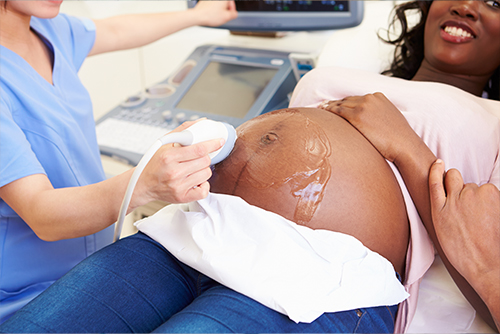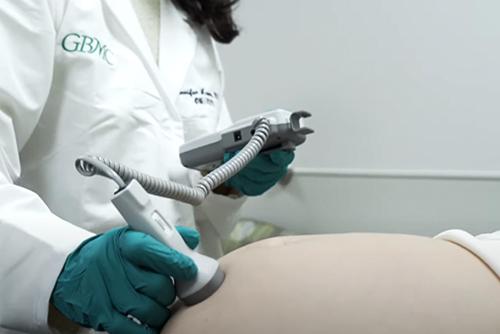Preparing for Pregnancy
Preparing for Pregnancy
GBMC conveniently offers all essential services to help women prepare for pregnancy, including preconception visits, education, genetic counseling and prenatal diagnostics in one place.
Long before the moment of conception, a baby's health is affected by the health of the parents. By the time pregnancy is confirmed, the embryo has already made critical developmental changes. Today, prospective parents can prepare for a healthier pregnancy by making good health and lifestyle choices before getting pregnant. While no one can guarantee a perfect pregnancy, problems can be minimized when precautions are taken before conception occurs.
Preconception Health Care
Before pregnancy is the best time to evaluate your health. Both partners should schedule a visit to their health care provider at least three months before attempting to conceive. A preconception visit will include the following:
- Female/male reproductive history
- Female pelvic examination
- Female/male screening for potential fertility problems
- Female blood tests to determine immunity to infections which could threaten pregnancy
- Female/male screening for sexually transmitted infections
- Female assessment of chronic medical conditions (ie: diabetes, hypertension, thyroid)
- Family history of birth defects for possible referral to a genetic counselor
- Female review of menstrual cycle
- Female/male counseling on nutrition, diet, exercise, and life style behaviors
Nutrition and Folic Acid
Recent studies have found that folic acid supplements can help protect your unborn baby against birth defects of the spine and brain. The U.S. Public Health Service urges women to take a multivitamin that contains 0.8 milligrams of folic acid every day prior to trying to conceive. Folic acid is also found in green leafy vegetables, asparagus and liver. Begin one to three months prior to conceiving and continue through the first trimester of pregnancy.
Pre-pregnancy Weight
Some research suggests that your pre-pregnancy weight has more influence on the birth weight of your baby than does the amount you gain or lose during the pregnancy itself. Both underweight and overweight women are at risk for vitamin and mineral deficiencies as well as other problems including preterm labor and low (or high) birth weight babies. Improving nutrition significantly reduces the risk of your baby having a low birth weight. Make sure you are eating a balanced diet and cut back on foods which are high in fats and sugars.
Lifestyle Behaviors
Discontinue behaviors which can be harmful to the developing fetus including:
- Smoking — Quit at least three months prior to conceiving. Smoking has been shown to influence fertility, cause miscarriage, low birth weight and preterm delivery.
- Alcohol — Birth defects and growth retardation are known risk factors. Lower birth weight has been associated with fathers who drank prior to conception. No safe level has been identified.
- Drugs — Discuss illicit, prescription and over-the-counter drug use with your physician and follow recommendations.
Prenatal Diagnostics
GBMC's Prenatal Diagnostic Center offers a comprehensive program with genetic counseling and testing prior to conception and during pregnancy. Highly-trained genetic counselors help couples with an increased risk of having a child with a birth defect find out what those risks are and what can be done to detect a genetic disorder. The Center offers the most advanced genetic testing, including amniocentesis, chorionic villus sampling (CVS), high resolution ultrasonography, and fetal echocardiography in the Baltimore area. Please call the Prenatal Diagnostic Center at 443-849-2536.
Antepartum Testing
GBMC has state-of-the-art testing including biophysical profiles, non-stress tests and oxytocin challenge tests (OCT) to assess fetal well-being. This full range of antepartum (prenatal) testing will be scheduled by your physician.



